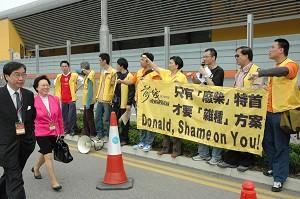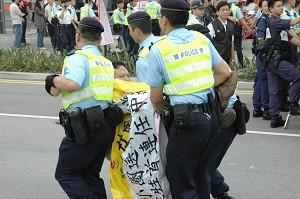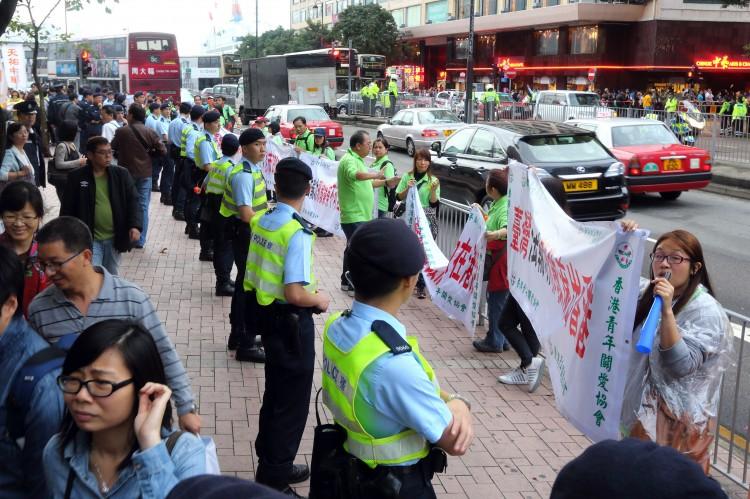HONG KONG—On March 25, ballots from the 3rd elections for the Chief Executive of Hong Kong Special Administrative Region (SAR) was announced with current Chief Executive Donald Tsang Yam-kuen winning the small group election as expected. Meanwhile, non-governmental organizations held an unofficial yet democratic election, which gave an opposite outcome of 60 percent of the winning ballots going to Alan Leong and only 32 percent going to Mr. Tsang, who was appointed by the Chinese Communist authorities.
During the official election, many civil groups protested inside and outside the official voting site. They protested that the small group selected election (800 electors) was manipulated by the communist regime, and requested a general democratic election. Just before the election, about a dozen members from The Frontier — a non-governmental political group — drove 20 cars, station wagons and trucks with banners stating “Support General Elections,” and “Donald, Shame on You!” to protest outside the voting site at the Asia World-Expo.
Dozens of members of the League of Social Democrats (LSD), including current legislator Leung Kwok Hung, tried to break over the restriction line and ended up clashing with the police.
The convener of The Frontier, Emily Lau, said: “Today is a sad day. Though we hold the executive election, most of the citizens do not have the right to vote. I am one of the selected 800 electors eligible to vote, but I feel shameful for it. So I didn’t vote. I instead protested with most of the citizens who did not have the right to vote. I protest against this shameless election.”


